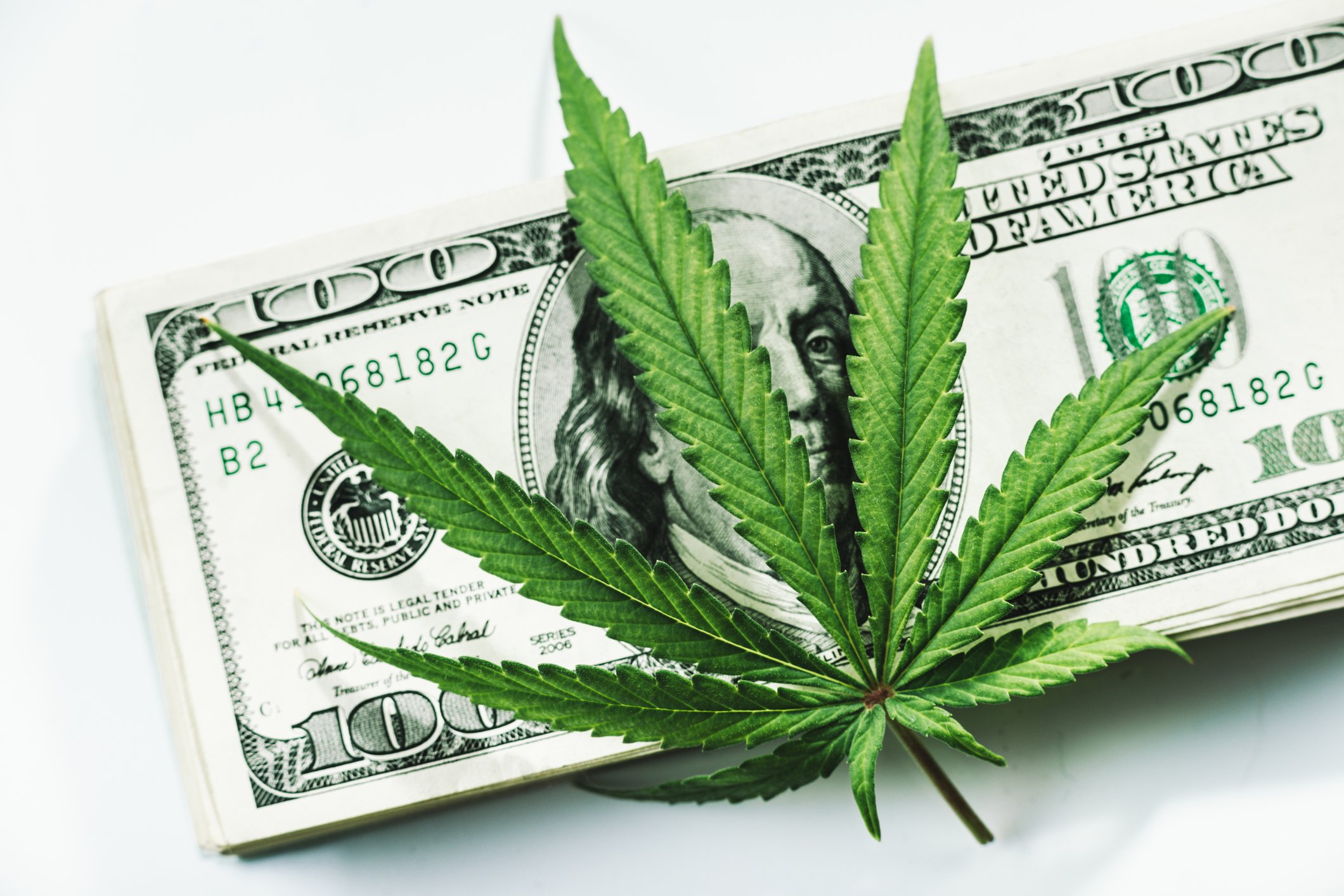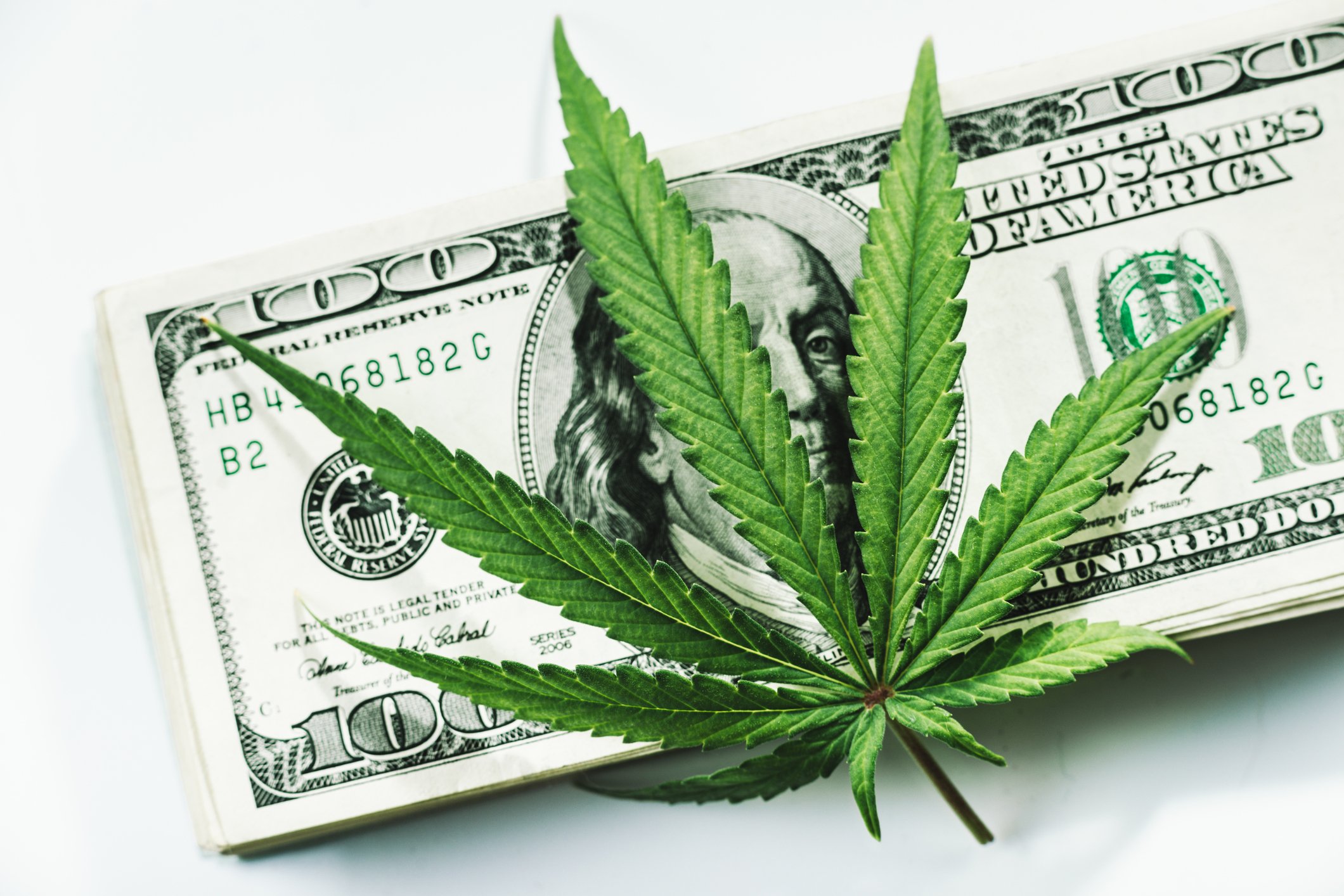Whether you realize it or not, you're a witness to history. Just two weeks ago today, Canada lifted the curtain on nine decades of recreational marijuana prohibition and became the first industrialized country in the world to allow adults to legally purchase cannabis for personal use. It's a sign of the changing tide on cannabis, and it should bring in billions of dollars in added annual revenue for the legal Canadian industry.
From micro caps to large caps, and direct players to ancillary companies operating behind the scenes, marijuana stocks have benefited from legalization across the board. Since 2016, many have seen their share prices catapult higher by a four-digit percentage, rewarding investors who had the stomach and wherewithal to stick with pot stocks through some very volatile times.

Image source: Getty Images.
The first marijuana stock just went up in smoke
But as investors, we also know that as fast-growing industries mature, winners and losers will emerge. It may appear that every pot stock has a plan for success now, but history suggests that quite a few will simply miss the mark. On Monday, we may have witnessed our very first marijuana stock go up in smoke: India Globalization Capital (IGC +0.26%).
India Globalization Capital recently made headlines when its share price skyrocketed by more than 1,300% between Sept. 14 and Oct. 2, following the announcement that it planned to introduce a branded line of hemp- and cannabidiol-infused beverages. Cannibidiol, or CBD, is the nonpsychoactive component of the cannabis plant best known for its perceived medical benefits. Ram Mukunda, CEO of India Globalization Capital, pointed to estimates from Grand View Research as his motivation to push IGC, as the company is also known, into the energy drink market. Grand View Research estimates energy drink revenue will reach nearly $85 billion globally by 2025.
The announcement from IGC followed a slew of press releases and rumors that other marijuana stocks and brand-name companies were interested in what CBD-infused beverages had to offer.

Image source: Getty Images.
India Globalization Capital is set to face a lot of competition
On Aug. 1, Molson Coors Brewing Co. (TAP +2.41%) announced that it was forming a 57.5%-to-42.5% joint venture with HEXO Corp. (HYYDF +0.00%) to develop infused beverages in Canada. Mind you, infused beverages, along with edibles, vapes, and concentrates, aren't even legal yet. The Canadian Parliament is expected to expand the options for consumption next year, although no official timeline has been set. Nevertheless, Molson Coors is angling to reverse a trend of declining North American sales, whereas HEXO is looking to branch out beyond dried cannabis, which is expected to be highly commoditized over time. HEXO's unique industry knowledge and Molson Coors' marketing expertise and deep pockets should allow this duo to be competitive in CBD-infused beverages, once legalized.
Just two weeks later, in mid-August, Corona and Modelo beer maker Constellation Brands (STZ +2.06%) reported its intent to take a $3.8 billion equity stake in Canopy Growth Corp. (CGC +4.13%). This actually marked Constellation's third such investment in Canopy Growth since October 2017, although this was a mammoth investment compared with its prior two. Constellation and Canopy are expected to work on a slew of new products, including CBD-infused beverages, as well as work together to bring Canopy's products into new markets. Constellation's deep pockets and broad international presence should work perfectly to that end.
Even established, albeit small, beverage producers are dipping their toes in the water. New Age Beverages Corp. also announced that it would be entering the CBD-beverage market. Already producing ready-to-drink tea and coffee, kombucha, and energy drinks, New Age Beverages is looking to accelerate growth by turning to the CBD beverage market.

Image source: Getty Images.
Hit the road, IGC, and don't you come back no more
However, competition alone isn't what did IGC in. Rather, the New York Stock Exchange gave this burgeoning pot stock the boot.
On Monday, Oct. 29, the NYSE issued a press release that said:
NYSE Regulation commenced delisting proceedings against the Company pursuant to Section 1003(c) (i) of the NYSE American Company Guide (the "Company Guide") which states that where the issuer has substantially discontinued the business that it conducted at the time it was listed or admitted to trading, and has become engaged in ventures or promotions which have not developed to a commercial stage or the success of which is problematical, it shall not be considered an operating company for the purposes of continued trading and listing on the Exchange.
NYSE Regulation also considered Section 1003(f) (iii) because the Company or its management have engaged in operations which, in the opinion of the Exchange, are contrary to the public interest. Section 1009(a) (ii) of the Company Guide states that it is necessary and appropriate for the protection of investors to immediately suspend trading in the Company's common stock.
This move isn't surprising, given that India Globalization Capital has, indeed, changed its business model numerous times. It purportedly has a single medical cannabis drug for the treatment of Parkinson's disease and other nervous system disorders, a legacy infrastructure segment that trades in infrastructure commodities like steel and iron ore, and now wants to develop and produce CBD-infused beverages.
This is a company that's been all over the map since its founding, and with no commercial-stage operations, losses and cash burn are expected to continue.
To be fair, IGC wasn't exactly much of a "marijuana stock" to begin with. Nevertheless, with this delisting, it becomes what's likely the first pot stock to go up in smoke.








